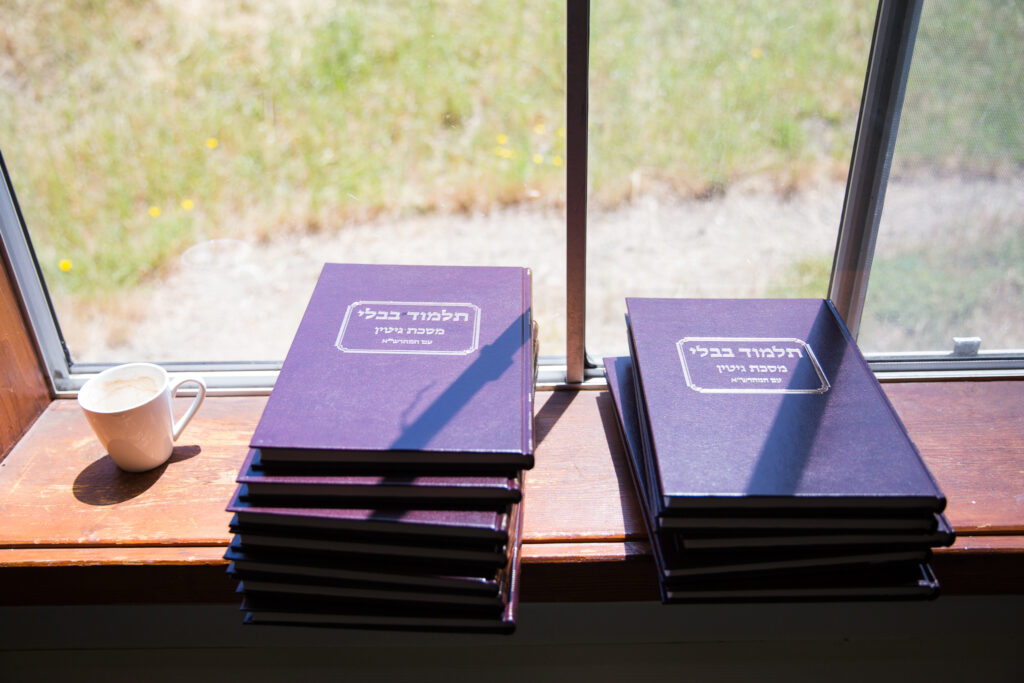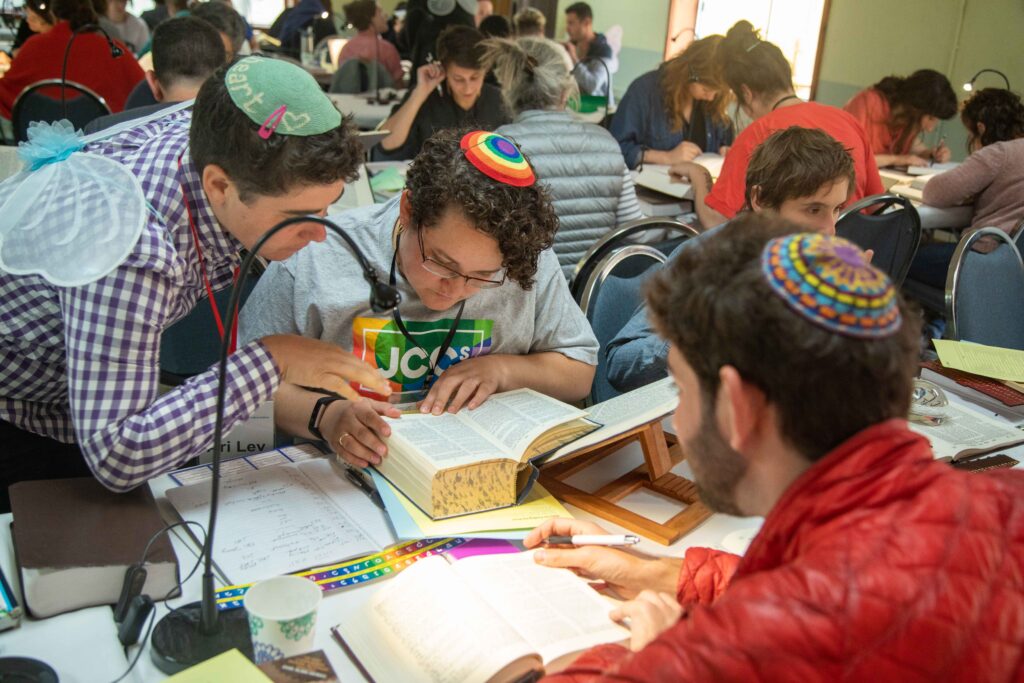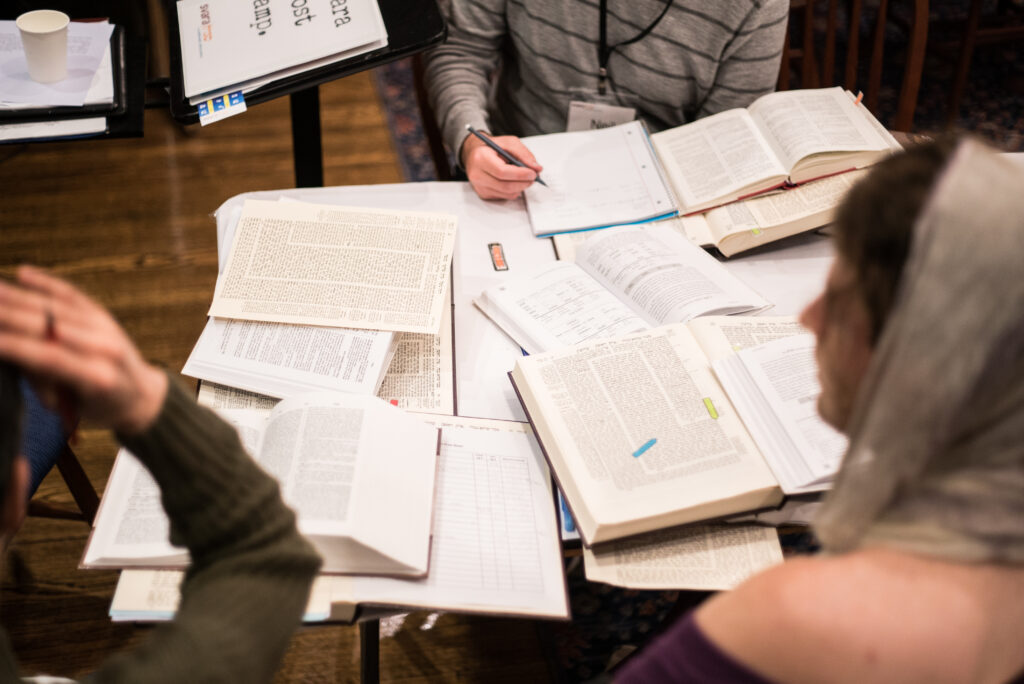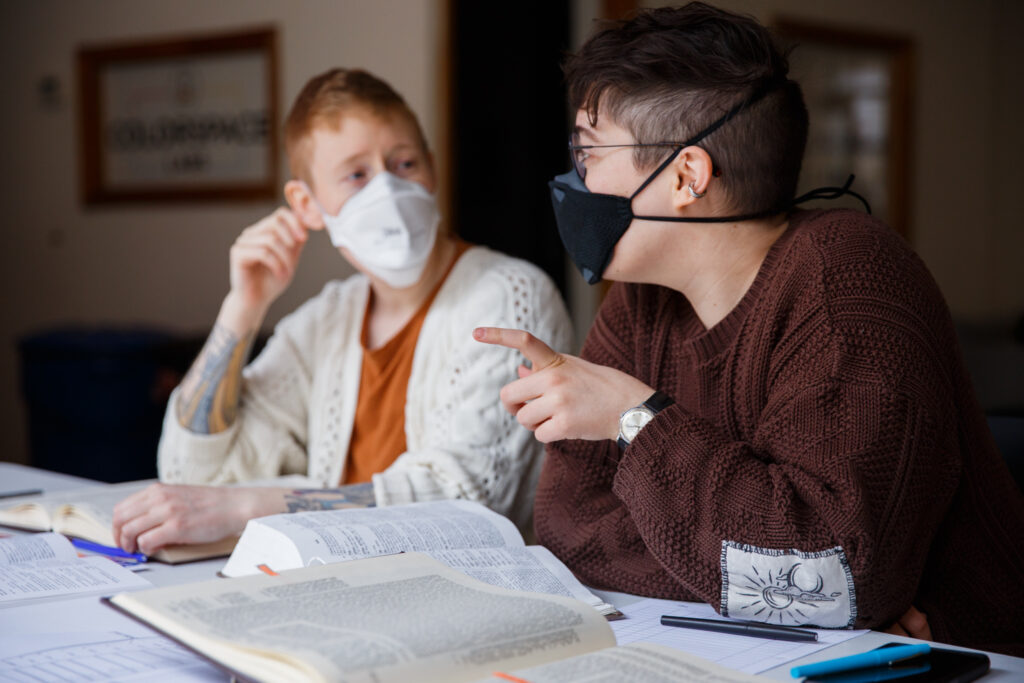A very hot take: I love when the summer ends.
Don’t get me wrong, this folkloric season brings with it small pleasures I look forward to all year long. That being said, I was born in the fall and have always felt comforted by the end of summer. The noticeably cooler air of certain August mornings fills me with the joyful anticipation of my birthday, another small pleasure I look forward to all year. The days are shorter (but not too short!) and the air is cooler (but not too cold!) and my body starts to feel a certain kind of peace I can’t always access in the blissful, bombastic pace of summer. Not to mention that as a masc-leaning person of Irish-German ancestry, I simply do not feel gender euphoria in clothes designed for 90% humidity. The fall arrives and I can sit in the dappled shade for as long as I like. I can wear corduroy pants. I am unafflicted by the murderous sting of black flies. Olam haba, if you ask me.
Ever since I converted to Judaism, the joy I associate with the end of summer has grown by leaps and bounds. My Jewish coming of age brought with it the codification of my lifelong reverence for the turning of this season, which I eventually learned to call Elul: a spiritually potent stretch of time that is characterized both by finality and a fresh start. I remember feeling so held when I learned that, millenia before I was born on the winds of “autumn,” the Jewish people had been marking the same season as blessed and full.
To be a convert is to believe deeply that you are in the presence of something sacred, even if that sacred thing is almost entirely illegible to you. It is stumbling over transliterations, feeling how entirely unfamiliar the words feel in your mouth, but loving them just the same. SVARA has helped me believe that the sacred thing of our tradition is mine to shape, but I would be lying if I said I didn’t doubt that from time to time. I have slowly started to build my own relationships with Jewish ritual, Jewish prayer, Jewish time, and Jewish life. One of the first tangible things I felt like I accomplished as a Jewish person was learning to recite kiddush on Shabbat evening. Listening to my housemates recite it week after week after week, I could sense myself growing more familiar with the rises and falls of it all. Living with six Ashkenazi folks meant learning a specific version of kiddush, and I fell completely and totally in love with it. It seemed to move like water. It had sonic moments of height and depth, excitement and despair, soberness and celebration (and how about when mikol haamim is paired with a mostly-major but suddenly-minor arrangement of notes that resolve just in the nick of time?!). I fixated on the melody and, week after week after week, I tried to commit it to memory little by little. I even asked one of my housemates to send me an iPhone recording of her saying it so I could practice. One cool evening during Elul, not long after I finished my conversion, I recited the whole thing from start to finish at shabbes dinner surrounded by my beloved housemates. Everybody clapped. The funniest part of the whole thing? I had absolutely no idea what I had just said.
My connection to kiddush had always been, first and foremost, a musical one. I actually forgot there could be anything else beyond the meaning I had assigned to its melody. Once I got over the shehechianuity of making kiddush for the first time, I noticed a small rush of shame that (I think) isn’t uncommon for someone who converted. I felt like the way I connected with the blessing wasn’t enough, and so I began the process of forging a “real” connection to the rest of it. More specifically, to the text of it.
I turned first to a transliteration, mostly to fact-check what I had committed to memory all those nights during dinner. I said it outloud as I read along and, syllable by syllable, it seemed pretty accurate. Then I moved on to the actual translation. As I started reading, everything seemed perfectly logical. Okay, we were recognizing the morning, the evening, the sixth day, got it, got it, got it. God’s rest from work—such tremendous work—on the seventh day, God blesses it and makes it holy. Okay, cool. Sounds about right.
I kept reading.
The next part of kiddush had always been my favorite because it was the part where everyone around the table joins in for the first time and sings together as we bring the whole thing home in a triumphant-sounding melody that is both soft and strong. I was now learning that this part contained the actual sanctification of the sabbath. As I read the translation, the words definitely mirrored the gratitude and awe that come through the music of it:
Blessed are You, Adonai our God, Sovereign of all, who finding favor with us, sanctified us with mitzvot. In love and favor, You made the holy Shabbat our heritage as a reminder of the work of Creation. As first among our sacred days, it recalls the Exodus from Egypt. You chose us and set us apart from the peoples. In love and favor You have given us Your holy Shabbat as an inheritance. Blessed are You, Adonai, who sanctifies Shabbat.
When I reached the end of the translation, I did whatever the reading equivalent is of stopping dead in my tracks.
You chose us and set us apart from the peoples. In love and favor You have given us Your holy Shabbat as an inheritance.
I said it outloud. “You chose us.” Hmmm, I thought.
What followed can only be described as a cascading, unwieldy, stream-of-consciousness reckoning with the concept of “choice.” What, after all, does it mean to choose? What does it mean here in the context of kiddush, and what does it mean in my life? I’ve come to learn that the idea of a “chosen people” (which I would argue is what “choice” refers to here) is complex, fraught, and deserves to be untangled by someone much more qualified. But thinking about “choice” in my own life seemed to surface so many of the things I was feeling about this whole kiddush debacle: I chose to convert, but I didn’t choose to fall in love with the musicality of kiddush. In a moment when I felt like my love for kiddush had to be validated, I started to wonder if the things we choose inevitably hold more meaning than the things that just happen.
But then, like a flash of lightning, I remembered my beautiful, life-giving, complicated, and completely unchosen queerness. I remembered growing up against the assumption that I would choose so many things I knew I didn’t want: girlness, straightness, cisness, Roman Catholicism for god’s sake. For much of my life, these choices entrapped me. I remembered being asked (sometimes with care but more often with remarkably misguided and unwelcome curiosity) about why I was the way I was. I can remember feeling like such a failure for not being able to explain it. So why was I holding myself to the same harmful standards when it came to building a relationship with ritual? Why couldn’t I trust that singing kiddush felt deeply right, and that that was enough? Why was I enabling this manufactured pressure of making a right choice, or making any choice at all? I tried to assure myself that there was some incredibly expansive explanation for everything that came tumbling out of me while trying to learn the words to a song I already knew. In a last-ditch effort to find clarity, I turned to the place where all incredibly expansive explanations live: the Jastrow dictionary.
With the text of kiddush next to me, I scanned the page to find an anchor that would allow me to discern exactly where this question of “choice” emerges. B’h that the word מִצְרָֽיִם / mitzrayim (which immediately precedes the whole “chosen” part) is easy to spot in a crowd (for some reason, memorizing the letters mem and tzadi came very easily to me during Alef-Bet Basics). So I found mitzrayim and thus was able to locate the start of the next sentence, which reads:
כִּי בָֽנוּ בָחַֽרְתָּ, וְאוֹתָֽנוּ קִדַּֽשְׁתָּ
מִכּל הָעַמִּים
Ki vanu vacharta, v’otanu kidashta, mikol haamim.
You chose us and set us apart from the peoples.
Based on the tiny bit I learned about grammar during Queer Talmud for Beginner’s mind, I made an educated guess that the question of chosenness lived in vacharta, coming from the word vachir. And based on the slightly larger bit I learned about finding the root, I decided that the root must be בָּחר. (Before I went any further, I decided to consult with one of the best living resources related to finding the root, my fellow Team SVARA comrade Amir Weg, who was encouraging in his response.) Feeling ready, I flipped open Jastrow and started the slow trek, letter by letter, to locate the root of this word that by now was taunting me. I found it on page 155, just above the center of the page on the right-hand side. And you know what happened next? I did that same stop-dead-in-my-tracks thing. The very first definition of the root belonging to the word that means “to choose” was “to try.”
“To try” brings me such an immediate sense of comfort. It feels spacious, it feels encouraging, it feels full of possibility. In that moment, it also felt abundantly easier to reckon with than “to choose.” My sense of “to choose” felt daunting, permanent, and full of value judgment. Heck, I would take “try” over “choose” any day of the week. I would take room for practice, experimentation, testing and re-evaluating, going back to the drawing board (or the painting board, or the singing board, or the crying board). I would try forever if I could. And maybe, as Jews by choice and birth, claiming our stake in this tradition is doing exactly that.
For me, being a convert means that I might not have inherited this tradition, but goodness I am trying. And if there’s one place on earth where trying is the only prerequisite, it’s SVARA. I am staying open to as much as possible in order to find what feels right, and at SVARA we are all celebrated in doing that. As we head toward this last week of Av and these last moments of summer (whether you like them or not), I hope we can trust that the many ways we try are not only worthy and worthwhile, but wildly enough.







